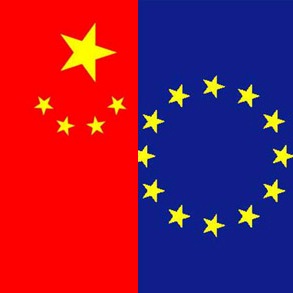China, EU in diplomatic bind over satellite-navigation systems
 Beijing - China and the European Union are at loggerheads over their satellite-navigation systems after China's announcement that it plans to use the same broadcast frequency that the European Union earmarked for its Galileo system, officials said Monday.
Beijing - China and the European Union are at loggerheads over their satellite-navigation systems after China's announcement that it plans to use the same broadcast frequency that the European Union earmarked for its Galileo system, officials said Monday.
The conflict over the EU's Galileo and China's Compass navigation systems has become a "classic diplomatic problem," EU External Relations Commissioner Benita Ferrero-Waldner told reporters in Beijing.
"We are in a difficult situation, but it will be solved," said Serge Abou, the EU ambassador to China.
China has said it plans to run its system on the same frequency as Galileo, bringing the potential for operational conflicts and limiting the military usefulness of the EU system.
"China has put a hand on the frequency that we have reserved," Abou said.
"For the time being, neither us nor the Chinese is ready to use this [frequency]," he said.
But two rounds of talks have apparently produced little progress toward resolving the standoff.
China, the European Union and Russia are all developing satellite-navigation systems that they hope would become commercial rivals to the US Global Positioning System (GPS).
China agreed to cooperate with the EU's 4-billion-euro (5.32-billion-dollar) Galileo project in 2003.
But some analysts said they believe China might have chosen the same frequency as Galileo for Compass after EU officials rejected its plan to become a major investor in the European system.
Galileo's 30 satellites were originally scheduled to be operational by 2010, but slow progress means the system is not expected to be completed until 2012 or 2013.
In January, Zhang Xiaojin, director of aeronautics at the China Aerospace Science and Technology Corp, told state television that Compass would be completed by 2015 with the launch of 30 more satellites.
Compass would enable China to "shake off the dependence on foreign systems," Zhang was quoted as saying.
The first Beidou satellite for Compass was launched in 2000, followed by four other satellites that form a basic regional navigation service within China.
The GPS system - run by the US Defence Department - is offered free to businesses worldwide while Galileo plans to charge users.
Galileo's original consortium included the Franco-German aerospace consortium EADS, France's Thales and Alcatel-Lucent, British company Inmarsat, Italy's Finmeccanica, AENA and Hispasat of Spain and a German group with Deutsche Telekom and the German Aerospace Centre.
Israel, the United States, Ukraine, India, Morocco and South Korea also agreed to invest in Galileo. (dpa)